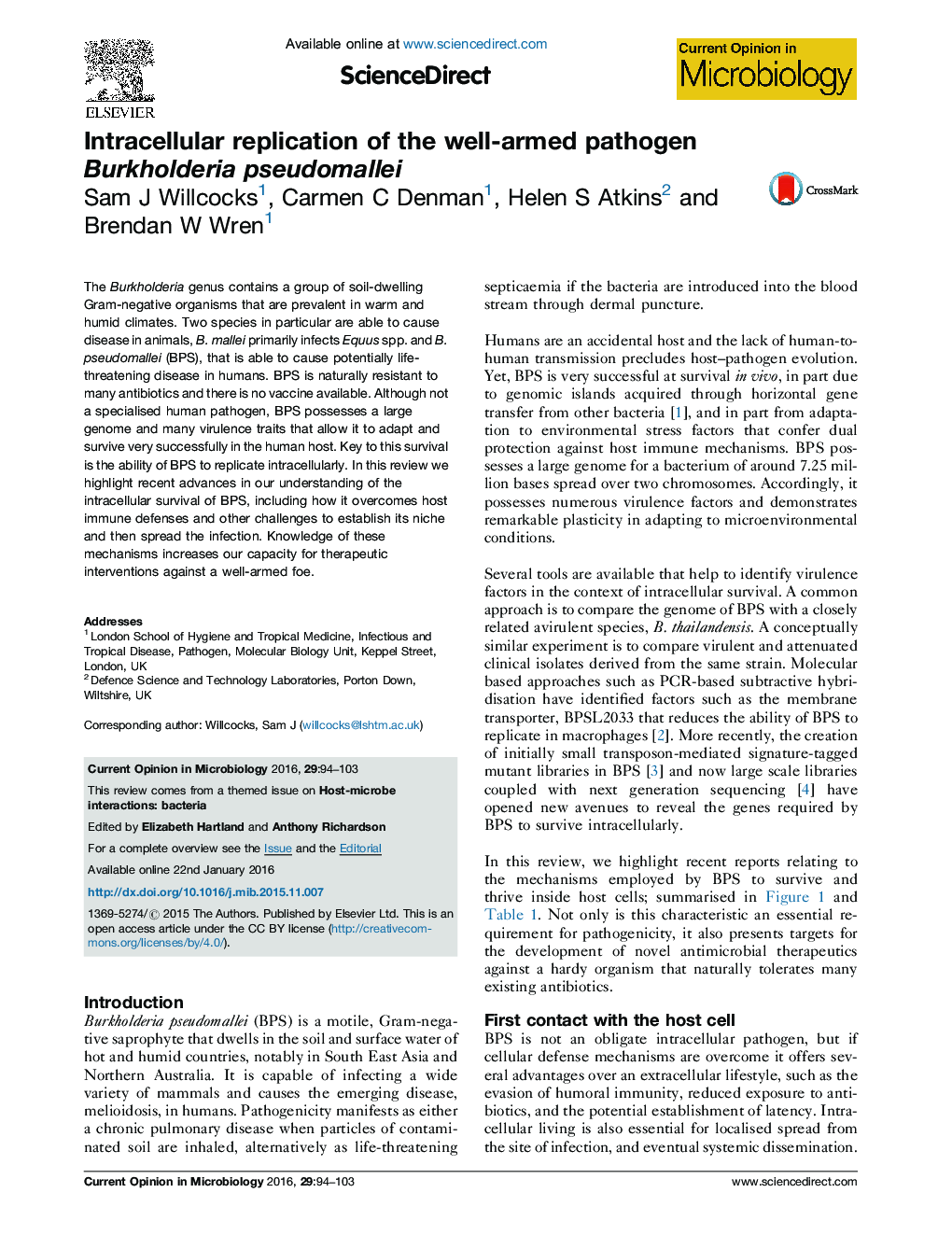| Article ID | Journal | Published Year | Pages | File Type |
|---|---|---|---|---|
| 6131712 | Current Opinion in Microbiology | 2016 | 10 Pages |
Abstract
The Burkholderia genus contains a group of soil-dwelling Gram-negative organisms that are prevalent in warm and humid climates. Two species in particular are able to cause disease in animals, B. mallei primarily infects Equus spp. and B. pseudomallei (BPS), that is able to cause potentially life-threatening disease in humans. BPS is naturally resistant to many antibiotics and there is no vaccine available. Although not a specialised human pathogen, BPS possesses a large genome and many virulence traits that allow it to adapt and survive very successfully in the human host. Key to this survival is the ability of BPS to replicate intracellularly. In this review we highlight recent advances in our understanding of the intracellular survival of BPS, including how it overcomes host immune defenses and other challenges to establish its niche and then spread the infection. Knowledge of these mechanisms increases our capacity for therapeutic interventions against a well-armed foe.
Related Topics
Life Sciences
Immunology and Microbiology
Microbiology
Authors
Sam J Willcocks, Carmen C Denman, Helen S Atkins, Brendan W Wren,
